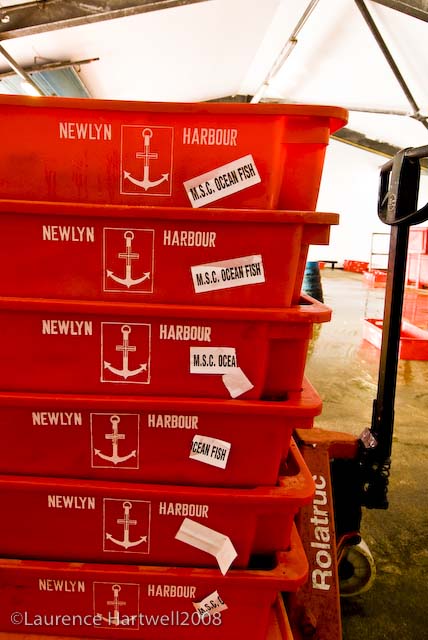 |
| Click to view web cam page. |
Newlyn Fishermen's Mission has installed a web cam with a stunning view over the harbour. Situated inside the landmark clock tower atop the Mission's roof, the web cam looks out in a southerly direction towards the harbour entrance. Vessels can be seen entering and leaving the port during daylight hours. The view also provides a good indication of the current weather to be enjoyed in Mount's Bay.
The Mission building at Newlyn is currently fighting for its very survival - it, along with the other Mission Centres, is due to close in the future. However, the building was donated to the RNMDSF by the Bolitho family - as indicated in this extract from a recent story in the local newspaper Western Morning News and as a result is is hoped that this may help preserve its existence.
"Miss Nora was already deeply involved in the work of the Royal National Mission to Deep Sea Fishermen, which was established at Newlyn in the very early 1900s. She would read newspapers and novels to the fishermen and paid for improvements to its premises, Stanley House. By 1910 it was agreed that the building was too small, so Miss Nora offered to provide more than £4,000 for a new building as a gift "to the men of the fishing community".
It is ironic that when the doors of the Ship Institute – so labelled because of the proud golden galleon above the high clock – were opened on September 30, 1911, women were not allowed in. Doubtless Miss Nora was excluded from this prohibition. At this time, and during the 19th century, the Bolitho family had a deep interest in the industry through ownership of fishing boats and seines, as well as through banking, mining and farming. Indeed, the family was to the forefront in financing of the building of the north and south piers."
Mission skipper, Keith Dixon welcomes ideas and suggestions to further involve the Mission in its service to the fishing communities in Cornwall.













